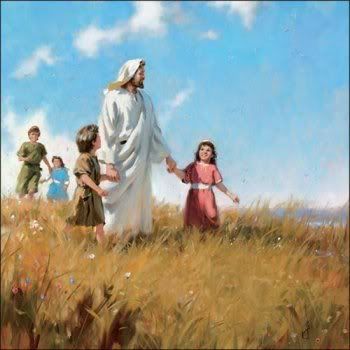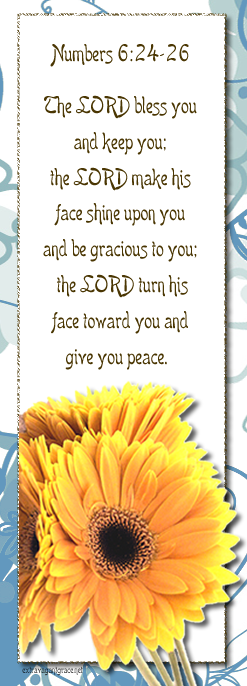One and only musician who have world wide records in popularity and songs and music. All tribute to him as an all time musician.
Robert Nesta Marley was born on February 6, 1945 in the parish of St. Anns in Nine Miles, Jamaica to Norval Sinclair Marley and Cedella ‘Ciddy’ Malcom. Norval was a British Marine officer and Ciddy was a native Jamaican. Soon after his birth, Bob’s father left and had little contact with him although he did financially support his son.
When Bob was five, his father took him to Kingston, Jamaica. It wasn’t until a year later that Bob saw his mother again. Soon after, he moved with his mother to Trenchtown, a section of Kingston notorious for it’s rough ghettoes.
In 1961, at the age of sixteen, Bob released his first song, Judge Not, which did not do well. This did not discourage Bob. He continued to pursue a career in music and in 1965, he formed a group called ‘The Wailers’ with Bunny Livingstone (later known as Bunny Wailer) and Peter McIntosh (later known as simply Peter Tosh.) Bob acted as front man for the group and wrote most of the group’s material. The trio released ‘Simmer Down,’ ‘Rule Them Rudie’ and ‘It Hurts To Be Alone,’ all of which were hits in Jamaica.
In 1966, Bob Marley married Rita Anderson, his long-term girlfriend. The next day he went to the United States and stayed long enough to gain financing for his next record. The next year Bob and Rita’s first child, Cedella, was born. Soon after, the Marleys set up their own recording label, Wail ‘N Soul ‘M Records, and produced a single, ‘Bend Down Low/Mellow Mood.’ That same year, the record label was ended.
Their next child, David (Ziggy) was born in 1968. The Wailers continued to release singles without producing an album. The band formed another label, Tuff Gong, and
finally reached a degree of success. By that time, the
Wailers were famous in the Caribbean, but were unknown in
the rest of the world.
Finally in 1971, the Wailers got a break. Island Records forwarded them 8,000 pounds for the production of a full album. The Wailers were the first reggae band to receive so much money and to have access to the best
recording studios. They produced two albums, ‘Catch a Fire’ and ‘Burnin’’, the latter which included ‘Get Up Stand Up’ and ‘I Shot the Sheriff.’ The Wailers began to extensively toured the United States and the United Kingdom and when Eric Clapton covered ‘I Shot the Sheriff’ the Wailers soared to instant fame.
Soon after their success in the US, the band changed their name to Bob Marley and the Wailers and then released their next album, ‘Natty Dread.’ The album included the hit single ‘No Woman No Cry,’ perhaps their most popular song. Soon after, Bunny and Peter left to pursue solo careers and
were replaced by new members. By 1976, reggae fever had swept the United States. Rolling Stone magazine named Bob Marley and the Wailers the ‘Band of the Year’ and ‘Rastaman Vibration’ rose to the top of the charts.
On December 3 of 1976, an assassination attempt was made on Bob Marley, his wife and the managers of the Wailers to keep him from playing at the Smile Jamaica concert in Kingston. His concert was scheduled for December 5 after a presidential candidate’s election rally, a presidential candidate who happened to be at odds with the US. Some people believe that the assassination attempt was executed by the US government, for fear that Marley’s performance would sway the vote. Despite receiving two gun shot wounds, Bob Marley performed anyway and then left for the UK.
Bob Marley and the Wailers went on to produce their next album, ‘Exodus,’ in 1977. The release of this album propelled Bob to a international superstar. Later, in May of the same year, Bob found out that he had cancer in his toe. Doctors recommended that he have the toe removed, but
Bob refused since this was against his Rastafarian beliefs.
In July, the rest of the Exodus tour was canceled.
In 1978, the band released another album, ‘Kaya.’ The group's songs went from protest anthems to love songs about ganja (marijuana), which is highly held by Rastafarians as a way to connect with Jah (God.) In April, Marley returned to Jamaica to perform in the One Love Peace Concert, and later that year he received a Peace Medal of the Third World from the United Nations. Bob Marley also traveled to Africa for the first time, making stops in Kenya, Ethiopia and Zimbabwe.
The band went on touring throughout the US and Europe and produced a few more albums, ncluding ‘Uprising.’ However, in 1980, Marley fell gravely ill. The cancer in his toe had spread upwards through his body and had infected his liver, stomach and brain. In September, Bob nearly fainted during a concert in New York City. The next day he collapsed while jogging through a park and was rushed to the hospital. The doctors revealed that the tumor in his brain had greatly enlarged and that Bob had less than a month to live.
Bob wanted to continue the tour though, and he performed a spectacular show in Pittsburgh on September 22. Rita was not happy with his decision to spend his final days touring though, and the concert was canceled the next day. Bob then went to Miami where he was baptized at the Ethiopian Orthodox Church on November 4. Five days later, in a last attempt to save his life, Bob flew to a controversial treatment center in Germany with Rita. Three months later on May 11, 1981, Bob Marley died at the young
age of 36.
Bob Marley’s funeral was held in Jamaica on May 21, and hundreds of thousands of people attended, including the Prime Minister of Jamaica. Bob’s body was taken back to his birth place in Nine Miles where it now rests in a mausoleum.
15.5.09
Great musician (2)....Lucky Dube
More than ever, i have heard a heart rendering songs from the demised Lucky Dube.
Please listen and be inspired...
Lucky Dube was born in Ermelo, formerly of the Eastern Transvaal, now of Mpumalanga, on August 3, 1964. His parents separated before his birth and he was raised by his mother, Sarah, who named him because she considered his birth fortunate after a number of failed pregnancies. [6] Along with his two siblings, Thandi and Patrick, Dube spent much of his childhood with his grandmother, while his mother relocated to work. In a 1999 interview he described his grandmother as "his greatest love" who "multiplied many things to bring up this responsible individual that I am today.
As a child Dube worked as a gardener but, realizing that he wasn't earning enough to feed his family, he began to attend school. There he joined a choir and, with some friends, formed his first musical ensemble, called The Skyway Band.[8] While at school he discovered the Rastafari movement. At the age of 18 Dube joined his cousin's band, The Love Brothers, playing Zulu pop music known as mbaqanga whilst funding his lifestyle by working for Hole and Cooke as a security guard at the car auctions in Midrand. The band signed with Teal Record Company, under Richard Siluma (Teal was later incorporated into Gallo Record Company). Though Dube was still at school, the band recorded material in Johannesburg during his school holidays. The resultant album was released under the name Lucky Dube and the Supersoul. The second album was released soon afterwards, and this time Dube wrote some of the lyrics in addition to singing. Around this time he also began to learn English
On the release of his fifth Mbaqanga album, Dave Segal (who became Dube's sound engineer) encouraged him to drop the "Supersoul" element of the name. All subsequent albums were recorded as Lucky Dube. At this time Dube began to note fans were responding positively to some reggae songs he played during live concerts. Drawing inspiration from Jimmy Cliff [9] and Peter Tosh,[7] he felt the socio-political messages associated with Jamaican reggae were relevant to a South African audience in an institutionally racist society. [9]
He decided to try the new musical genre and in 1984, released the mini album Rastas Never Die. The record sold poorly - around 4000 units - in comparison to the 30000 units his mbaqanga records would sell. Keen to suppress anti-apartheid activism, the apartheid regime banned the album in 1985. [10] However, he was not discouraged and continued to perform the reggae tracks live and wrote and produced a second reggae album. Think About The Children (1985). It achieved platinum sales status and established Dube as a popular reggae artist in South Africa, in addition to attracting attention outside his homeland
Dube continued to release commercially successful albums. In 1989 he won four OKTV Awards for Prisoner, won another for Captured Live the following year and yet another two for House Of Exile the year after.[11] His 1993 album, Victims sold over one million copies worldwide.[2] In 1995 he earned a worldwide recording contract with Motown. His album Trinity was the first release on Tabu Records after Motown's acquisition of the label.[11]
In 1996 he released a compilation album, Serious Reggae Business, which led to him being named the "Best Selling African Recording Artist" at the World Music Awards and the "International Artist Of The Year" at the Ghana Music Awards. His next three albums each won South African Music Awards.[11] His most recent album, Respect, earned a European release through a deal with Warner Music. [2] Dube toured internationally, sharing stages with artists such as Sinéad O'Connor, Peter Gabriel and Sting. [9] He appeared at the 1991 Reggae Sunsplash (uniquely that year, was invited back on stage for a 25 minute long encore) and the 2005 Live 8 event in Johannesburg. [9]
In addition to performing music Dube was a sometime actor, appearing in the feature films Voice In The Dark, Getting Lucky and Lucky Strikes Back.
On October 18, 2007, Lucky Dube was killed in the Johannesburg suburb of Rosettenville shortly after dropping two of his seven children off at their uncle's house [13]. Dube was driving his Chrysler 300C which the assailants were apparently after. Police reports suggest he was shot dead by carjackers. Five men have been arrested in connection with the murder[14]. Three men were trialed and found guilty on March 31, 2009; two of the men attempted to escape and were caught.[15] The men were sentenced to life in prison.[16]
He is survived by his wife, Zanele, and his seven children.
(excerpts wikipedia)
Please listen and be inspired...
Lucky Dube was born in Ermelo, formerly of the Eastern Transvaal, now of Mpumalanga, on August 3, 1964. His parents separated before his birth and he was raised by his mother, Sarah, who named him because she considered his birth fortunate after a number of failed pregnancies. [6] Along with his two siblings, Thandi and Patrick, Dube spent much of his childhood with his grandmother, while his mother relocated to work. In a 1999 interview he described his grandmother as "his greatest love" who "multiplied many things to bring up this responsible individual that I am today.
As a child Dube worked as a gardener but, realizing that he wasn't earning enough to feed his family, he began to attend school. There he joined a choir and, with some friends, formed his first musical ensemble, called The Skyway Band.[8] While at school he discovered the Rastafari movement. At the age of 18 Dube joined his cousin's band, The Love Brothers, playing Zulu pop music known as mbaqanga whilst funding his lifestyle by working for Hole and Cooke as a security guard at the car auctions in Midrand. The band signed with Teal Record Company, under Richard Siluma (Teal was later incorporated into Gallo Record Company). Though Dube was still at school, the band recorded material in Johannesburg during his school holidays. The resultant album was released under the name Lucky Dube and the Supersoul. The second album was released soon afterwards, and this time Dube wrote some of the lyrics in addition to singing. Around this time he also began to learn English
On the release of his fifth Mbaqanga album, Dave Segal (who became Dube's sound engineer) encouraged him to drop the "Supersoul" element of the name. All subsequent albums were recorded as Lucky Dube. At this time Dube began to note fans were responding positively to some reggae songs he played during live concerts. Drawing inspiration from Jimmy Cliff [9] and Peter Tosh,[7] he felt the socio-political messages associated with Jamaican reggae were relevant to a South African audience in an institutionally racist society. [9]
He decided to try the new musical genre and in 1984, released the mini album Rastas Never Die. The record sold poorly - around 4000 units - in comparison to the 30000 units his mbaqanga records would sell. Keen to suppress anti-apartheid activism, the apartheid regime banned the album in 1985. [10] However, he was not discouraged and continued to perform the reggae tracks live and wrote and produced a second reggae album. Think About The Children (1985). It achieved platinum sales status and established Dube as a popular reggae artist in South Africa, in addition to attracting attention outside his homeland
Dube continued to release commercially successful albums. In 1989 he won four OKTV Awards for Prisoner, won another for Captured Live the following year and yet another two for House Of Exile the year after.[11] His 1993 album, Victims sold over one million copies worldwide.[2] In 1995 he earned a worldwide recording contract with Motown. His album Trinity was the first release on Tabu Records after Motown's acquisition of the label.[11]
In 1996 he released a compilation album, Serious Reggae Business, which led to him being named the "Best Selling African Recording Artist" at the World Music Awards and the "International Artist Of The Year" at the Ghana Music Awards. His next three albums each won South African Music Awards.[11] His most recent album, Respect, earned a European release through a deal with Warner Music. [2] Dube toured internationally, sharing stages with artists such as Sinéad O'Connor, Peter Gabriel and Sting. [9] He appeared at the 1991 Reggae Sunsplash (uniquely that year, was invited back on stage for a 25 minute long encore) and the 2005 Live 8 event in Johannesburg. [9]
In addition to performing music Dube was a sometime actor, appearing in the feature films Voice In The Dark, Getting Lucky and Lucky Strikes Back.
On October 18, 2007, Lucky Dube was killed in the Johannesburg suburb of Rosettenville shortly after dropping two of his seven children off at their uncle's house [13]. Dube was driving his Chrysler 300C which the assailants were apparently after. Police reports suggest he was shot dead by carjackers. Five men have been arrested in connection with the murder[14]. Three men were trialed and found guilty on March 31, 2009; two of the men attempted to escape and were caught.[15] The men were sentenced to life in prison.[16]
He is survived by his wife, Zanele, and his seven children.
(excerpts wikipedia)
Great musician (1)....Habib Koite
this music and songs are very into my souls..i love good song and music and this has been inspiring to me...hope to anyone listening to them too...
Biography of singer...
Malian guitarist Habib Koité is one of Africa’s most popular and recognized musicians. Habib Koité was born in 1958 in Thiès, a Senegalese town situated on the railway line connecting Dakar to Niger, where his father worked on the
construction of the tracks. Six months after his birth, the Koité family returned to the regional capital of west Mali, Kayes, and then to Bamako. Habib comes from a noble line of Khassonké griots, traditional troubadors who provide wit, wisdom and musical entertainment at social gatherings and special events. Habib grew up surrounded by seventeen brothers and sisters, and developed his unique guitar style accompanying his griot mother. He inherited his passion for music from his paternal grandfather who played the kamele n’goni, a traditional four-stringed instrument associated with hunters from the
Wassolou region of Mali. "Nobody really taught me to sing or to play the guitar," explains Habib, "I watched my parents, and it washed off on me."
Habib was headed for a career as an engineer, but on the insistence of his uncle, who recognized Habib's musical talent, he enrolled at the National Institute of Arts (INA) in Bamako, Mali. In 1978, after only six months, he was made conductor of INA Star, the school's prestigious band. He studied music for four years, graduating at the top of his class in 1982. (In fact
his talent was so impressive, that upon graduation, the INA hired him as a guitar teacher). During his studies, Habib had the opportunity to perform and play with a series of recognized Malian artists, including Kélétigui Diabaté and Toumani Diabaté. He sang and played on Toumani Diabaté's 1991 release Shake the World (Sony), and Kélétigui Diabaté is now a fulltime member of Habib’s band.
Habib takes some unique approaches to playing the guitar. He tunes his instrument to the pentatonic scale and plays on open strings as one would on a kamale n'goni. At other times Habib plays music that sounds closer to the blues or flamenco, two styles he studied under Khalilou Traoré a veteran of the legendary Afro-Cuban band Maravillas du Mali.
Unlike the griots, his singing style is restrained and intimate with varying cadenced rhythms and melodies.
Mali has rich and diverse musical traditions, which have many regional variations and styles that are particular to the local cultures. Habib is unique because he brings together different styles, creating a new pan-Malian approach that reflects his open-minded interest in all types of music. The predominant style played by Habib is based on the danssa, a popular rhythm from his native city of Keyes. He calls his version danssa doso, a Bambara term he coined that combines the name of the popular rhythm with the word for hunter’s music (doso), one of Mali’s most powerful and ancient musical traditions. “I put these two words together to symbolize the music of all ethnic groups in Mali. I’m curious about all the music in the world, but I make music from Mali. In my country, we have so many beautiful rhythms and melodies. Many villages and communities have their own kind of music. Usually, Malian musicians play only their own ethnic music, but me, I go everywhere. My job is to take all these traditions and to make something with them, to use them in my music.”
In 1988, Habib formed his own group, Bamada (a nickname for residents of Bamako that roughly translates "in the mouth of the crocodile"), with young Malian musicians who had been friends since childhood. In 1991, Habib won first prize at the Voxpole Festival in Perpignan, France, which earned him enough money to finance the production of two songs. One of those tracks, “Cigarette A Bana (The Cigarette is Finished)” was a hit throughout West Africa. After the release of another successful single entitled, "Nanalé (The Swallow),” Habib received the prestigious Radio France International (RFI) Discoveries prize. This award made it possible for the group to undertake their first tour outside of Africa during the summer of 1994.
In January 1995, Habib met his current manager, Belgian Michel De Bock, who, along with his partner Geneviève Bruyndonckx, are the directors of the management and production company Contre-Jour. Working together, they recorded his first album Muso Ko. Upon its release the album quickly reached #2 in the European World Music Charts. From that point forward, Habib became a fixture on the European festival circuit and began to spread his infectious music and high energy shows around the world. Habib has played at most of Europe’s major venues and festivals, including the Montreux Jazz Festival, WOMAD, and the World Roots Festival. In the spring 2000, he even toured Europe and Turkey as an invited guest with the legendary avant-garde jazz group, the Art Ensemble of Chicago.
Habib’s second album, Ma Ya, was released in Europe in 1998 to widespread acclaim. It spent an amazing three months at the top spot on the World Charts Europe. A subtle production which revealed a more acoustic, introspective side of Habib’s music, Ma Ya was released in North America by Putumayo World Music in early 1999 and quickly helped establish Habib as one of world music’s most exciting new figures.
Ma Ya spent 20 weeks in the top 20 of the College Music Journal New World music chart, and broke new ground at AAA rock radio, spending several months in regular rotation on commercial stations across the country. The album held the number one spot on the World Charts Europe for an amazing three months. Ma Ya has sold over 60,000 units in North America and over 100,000 worldwide, which is a tremendous success for a new world music artist.
The critical and commercial response to Ma Ya was tremendous. Habib was featured in hundreds of newspapers and magazines including People Magazine, Rolling Stone, Le Monde, Songlines, De Standaard, Le Soir and the cover of Global Rhythm magazine, to name a few. In the years since, he has also been featured in the US on National Public Radio’s All Things Considered, WXPN’s World Café, PRI’s The World, the House of Blues Radio Hour “Mali to Memphis” special, prestigious international programs such as CNN WorldBeat, and in June 2007 was the subject of a two-page photo spread in Vanity Fair magazine. In 2001, Habib Koité and Bamada became one the few African artists to appear on Late Night with David Letterman one of America’s most popular television variety shows,
Habib’s artistry and powerful personality earned him the adoration of fans such as Jackson Browne and Bonnie Raitt, both of whom ended up visiting Habib in Mali. They have both done a great deal to support Habib’s music, by promoting private e vents designed to attract new audiences and even performing live with Habib on stage. Habib and his band even made aguest appearance on Bonnie Raitt’s 2002 album Silver Lining, in which Bonnie and Habib performed a duet on the cowritten song “Back Around.”
Habib Koite & Bamada released their third album, Baro, in 2001 on Putumayo. The recording was also a huge success, selling more than 100,000 copies worldwide and further expanding Habib’s global audience.
One of the keys to Habib’s success has been is dedication to touring. A true road warrior, Habib Koite & Bamada have performed nearly 1000 shows since 1994 and appeared on some of the world’s most prestigious concert stages. Habib has also participated in a number of memorable theme tours alongside other artists. In February 1999, Habib and American bluesman Eric Bibb toured in support of the Putumayo compilation Mali to Memphis, which highlighted the connections between Malian and American blues music. In the fall of 2000, Habib participated in the “Voices of Mali” tour with Oumou Sangare, one of West Africa’s most renowned artists. Habib has also taken part in the Desert Blues project with fellow Malians Tartit and Afel Boucoum and the Putumayo Presents Acoustic Africa tour with South African troubadour Vusi Mahlasela and the rising young star Dobet Gnahoré from the Ivory Coast.
Habib Koite & Bamada’s transfixing performances have endeared them to an ever-growing audience, and in 2003 they released Fôly! , a double CD of live material.
Devoted fans have waited a long time for Habib to return to the recording studio. As with many craftsmen, Habib is a perfectionist, and spends a great deal of time composing and arranging his material. Recorded in Mali, Belgium and Vermont, Afriki finds Habib exploring new musical directions. The overarching theme of Afriki, which means “Africa” in the Malian Bambara language, is about the strengths and challenges of the African continent. “People here in Africa are willing to risk death trying to leave for Europe or the USA, but they are not willing to take that risk staying to develop something here in Africa,” says Habib. “Life can be really good or really bad wherever you live. People need to understand that. Even though Mali is poor, we still have good quality of life: You can walk outside and smile and someone will smile back. I have thought about it a lot, and I am not sure if poor countries have a worse quality of life.”
(excerpts http://www.contrejour.com/artists/habibkoite/index2_uk.php?page=biographie)
Biography of singer...
Malian guitarist Habib Koité is one of Africa’s most popular and recognized musicians. Habib Koité was born in 1958 in Thiès, a Senegalese town situated on the railway line connecting Dakar to Niger, where his father worked on the
construction of the tracks. Six months after his birth, the Koité family returned to the regional capital of west Mali, Kayes, and then to Bamako. Habib comes from a noble line of Khassonké griots, traditional troubadors who provide wit, wisdom and musical entertainment at social gatherings and special events. Habib grew up surrounded by seventeen brothers and sisters, and developed his unique guitar style accompanying his griot mother. He inherited his passion for music from his paternal grandfather who played the kamele n’goni, a traditional four-stringed instrument associated with hunters from the
Wassolou region of Mali. "Nobody really taught me to sing or to play the guitar," explains Habib, "I watched my parents, and it washed off on me."
Habib was headed for a career as an engineer, but on the insistence of his uncle, who recognized Habib's musical talent, he enrolled at the National Institute of Arts (INA) in Bamako, Mali. In 1978, after only six months, he was made conductor of INA Star, the school's prestigious band. He studied music for four years, graduating at the top of his class in 1982. (In fact
his talent was so impressive, that upon graduation, the INA hired him as a guitar teacher). During his studies, Habib had the opportunity to perform and play with a series of recognized Malian artists, including Kélétigui Diabaté and Toumani Diabaté. He sang and played on Toumani Diabaté's 1991 release Shake the World (Sony), and Kélétigui Diabaté is now a fulltime member of Habib’s band.
Habib takes some unique approaches to playing the guitar. He tunes his instrument to the pentatonic scale and plays on open strings as one would on a kamale n'goni. At other times Habib plays music that sounds closer to the blues or flamenco, two styles he studied under Khalilou Traoré a veteran of the legendary Afro-Cuban band Maravillas du Mali.
Unlike the griots, his singing style is restrained and intimate with varying cadenced rhythms and melodies.
Mali has rich and diverse musical traditions, which have many regional variations and styles that are particular to the local cultures. Habib is unique because he brings together different styles, creating a new pan-Malian approach that reflects his open-minded interest in all types of music. The predominant style played by Habib is based on the danssa, a popular rhythm from his native city of Keyes. He calls his version danssa doso, a Bambara term he coined that combines the name of the popular rhythm with the word for hunter’s music (doso), one of Mali’s most powerful and ancient musical traditions. “I put these two words together to symbolize the music of all ethnic groups in Mali. I’m curious about all the music in the world, but I make music from Mali. In my country, we have so many beautiful rhythms and melodies. Many villages and communities have their own kind of music. Usually, Malian musicians play only their own ethnic music, but me, I go everywhere. My job is to take all these traditions and to make something with them, to use them in my music.”
In 1988, Habib formed his own group, Bamada (a nickname for residents of Bamako that roughly translates "in the mouth of the crocodile"), with young Malian musicians who had been friends since childhood. In 1991, Habib won first prize at the Voxpole Festival in Perpignan, France, which earned him enough money to finance the production of two songs. One of those tracks, “Cigarette A Bana (The Cigarette is Finished)” was a hit throughout West Africa. After the release of another successful single entitled, "Nanalé (The Swallow),” Habib received the prestigious Radio France International (RFI) Discoveries prize. This award made it possible for the group to undertake their first tour outside of Africa during the summer of 1994.
In January 1995, Habib met his current manager, Belgian Michel De Bock, who, along with his partner Geneviève Bruyndonckx, are the directors of the management and production company Contre-Jour. Working together, they recorded his first album Muso Ko. Upon its release the album quickly reached #2 in the European World Music Charts. From that point forward, Habib became a fixture on the European festival circuit and began to spread his infectious music and high energy shows around the world. Habib has played at most of Europe’s major venues and festivals, including the Montreux Jazz Festival, WOMAD, and the World Roots Festival. In the spring 2000, he even toured Europe and Turkey as an invited guest with the legendary avant-garde jazz group, the Art Ensemble of Chicago.
Habib’s second album, Ma Ya, was released in Europe in 1998 to widespread acclaim. It spent an amazing three months at the top spot on the World Charts Europe. A subtle production which revealed a more acoustic, introspective side of Habib’s music, Ma Ya was released in North America by Putumayo World Music in early 1999 and quickly helped establish Habib as one of world music’s most exciting new figures.
Ma Ya spent 20 weeks in the top 20 of the College Music Journal New World music chart, and broke new ground at AAA rock radio, spending several months in regular rotation on commercial stations across the country. The album held the number one spot on the World Charts Europe for an amazing three months. Ma Ya has sold over 60,000 units in North America and over 100,000 worldwide, which is a tremendous success for a new world music artist.
The critical and commercial response to Ma Ya was tremendous. Habib was featured in hundreds of newspapers and magazines including People Magazine, Rolling Stone, Le Monde, Songlines, De Standaard, Le Soir and the cover of Global Rhythm magazine, to name a few. In the years since, he has also been featured in the US on National Public Radio’s All Things Considered, WXPN’s World Café, PRI’s The World, the House of Blues Radio Hour “Mali to Memphis” special, prestigious international programs such as CNN WorldBeat, and in June 2007 was the subject of a two-page photo spread in Vanity Fair magazine. In 2001, Habib Koité and Bamada became one the few African artists to appear on Late Night with David Letterman one of America’s most popular television variety shows,
Habib’s artistry and powerful personality earned him the adoration of fans such as Jackson Browne and Bonnie Raitt, both of whom ended up visiting Habib in Mali. They have both done a great deal to support Habib’s music, by promoting private e vents designed to attract new audiences and even performing live with Habib on stage. Habib and his band even made aguest appearance on Bonnie Raitt’s 2002 album Silver Lining, in which Bonnie and Habib performed a duet on the cowritten song “Back Around.”
Habib Koite & Bamada released their third album, Baro, in 2001 on Putumayo. The recording was also a huge success, selling more than 100,000 copies worldwide and further expanding Habib’s global audience.
One of the keys to Habib’s success has been is dedication to touring. A true road warrior, Habib Koite & Bamada have performed nearly 1000 shows since 1994 and appeared on some of the world’s most prestigious concert stages. Habib has also participated in a number of memorable theme tours alongside other artists. In February 1999, Habib and American bluesman Eric Bibb toured in support of the Putumayo compilation Mali to Memphis, which highlighted the connections between Malian and American blues music. In the fall of 2000, Habib participated in the “Voices of Mali” tour with Oumou Sangare, one of West Africa’s most renowned artists. Habib has also taken part in the Desert Blues project with fellow Malians Tartit and Afel Boucoum and the Putumayo Presents Acoustic Africa tour with South African troubadour Vusi Mahlasela and the rising young star Dobet Gnahoré from the Ivory Coast.
Habib Koite & Bamada’s transfixing performances have endeared them to an ever-growing audience, and in 2003 they released Fôly! , a double CD of live material.
Devoted fans have waited a long time for Habib to return to the recording studio. As with many craftsmen, Habib is a perfectionist, and spends a great deal of time composing and arranging his material. Recorded in Mali, Belgium and Vermont, Afriki finds Habib exploring new musical directions. The overarching theme of Afriki, which means “Africa” in the Malian Bambara language, is about the strengths and challenges of the African continent. “People here in Africa are willing to risk death trying to leave for Europe or the USA, but they are not willing to take that risk staying to develop something here in Africa,” says Habib. “Life can be really good or really bad wherever you live. People need to understand that. Even though Mali is poor, we still have good quality of life: You can walk outside and smile and someone will smile back. I have thought about it a lot, and I am not sure if poor countries have a worse quality of life.”
(excerpts http://www.contrejour.com/artists/habibkoite/index2_uk.php?page=biographie)
2.5.09
Our innocent offsprings..
Subscribe to:
Comments (Atom)




































